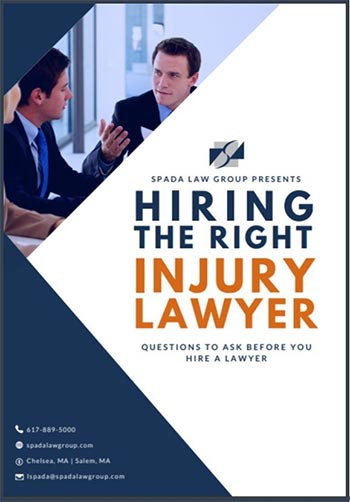Quick answer, not if you don’t want to. The decision to go to court or not is the client’s decision, NOT the lawyers. However, if your case cannot be settled or the offer from the insurance company is too low, you will have to make a decision to either walk away from the case or to accept the insurance company’s final offer. Oftentimes however there may be other options available to you if the insurance company agrees.
Typically, a case doesn’t settle for either one of two reasons. There may be a dispute as to who’s at fault for the accident. This is a common reason and it’s one we learn about early on in the case. Our client believes the other party is more than 50% at fault for the accident but the insurance company disagrees with our assessment. Therefore, no offer of settlement is made, and the only option is to file a lawsuit. A more common reason why cases sometimes don’t settle is that the insurance company believes that our client’s claim is worth less than we do. In this scenario, there are several options available to the client as to how to proceed.
When a case can’t be settled, there are four possible options:
- We can attempt to mediate the case.
- We can attempt to arbitrate the case.
- The client may choose to accept the offer presented (if any), or
- Go to court and begin the litigation process
It is the client’s decision. We will offer advice and guidance, but the client will choose the next steps.
Mediation
What is mediation? Mediation is a process by which our client and the insurance company, along with the lawyers, will get together in a conference room with a mediator and attempt to reach a settlement agreement. A mediator is usually a retired lawyer or judge who tries to bring the parties closer together on value. A successful mediation ends with an agreement between the parties, the mediator simply helped the parties get to their agreement. The success rate of mediation is very high in our experience. I would say 90% of our mediations result in a settled case. However, going to mediation is a voluntary process and oftentimes the insurance company is unwilling to mediate the case. Also, there are times when the mediation fails to produce a settlement and other options must be pursued. The important points to remember about a mediation are (a) both parties must consent to going to a mediation, (b) the mediator only facilitates the process, nothing he or she says or does is binding on the client or the insurance company. If either side is not satisfied with the process they are free to walk away and pursue other options.
Arbitration
The other voluntary option is arbitration. Arbitration can be thought of as a less formal, less expensive and quicker trial. The parties can agree to go outside of the court system, like mediation, and allow a “hired” judge to decide their case. Arbitration is similar to mediation in the sense that we are staying out of the court system, we have a third-party neutral being either a retired lawyer or retired judge who acts as a judge and he or she will hear the evidence and make a final decision on the case. There are advantages and disadvantages to arbitration over traditional litigation. It is quicker and less expensive than preparing and trying a case in court. The disadvantages are you are committing your case to the binding decision of one person, as opposed to a jury, and there is no right to an appeal if you believe a mistake was made. The arbitrator's award is final. The important points to remember about arbitration are (a) like mediation, both parties must consent to the process, (b) the arbitrator’s decision is binding on the client and the insurance company.
If mediation and/or arbitration are not options, then a client must either accept an offer that has been made or to initiate a lawsuit and seek a trial. Sometimes clients accept offers that we believe are too low because they do not want to go through the process of litigation. Litigation is expensive and time-consuming and in certain cases, it simply is not worth it to the client to endure the process. Other times it certainly makes sense to fight all the way. Your lawyer can help you when making such tough decisions.
What Types of Massachusetts Personal Injury Cases Can Be Resolved Through Mediation or Arbitration?
Any personal injury case dispute can be settled with the assistance of a mediator or arbitrator. Alternative dispute resolution is used to settle disputed claims without the necessity of a judge or jury. Examples of cases in which mediation or arbitration may be used to settle an injury claim include:
- Car Accidents
- Motorcycle Accidents
- Dog Bites
- Slip and Falls
- Bicycle Accidents
- Defective Product Injuries
- Delivery Truck Accidents
- Pedestrian Accidents
- Medical Malpractice
Now What?
If you have a dispute related to a personal injury claim, using arbitration or mediation to settle your claim may be to your advantage. In most cases, ADR saves time and money, in addition to allowing parties to tailor the process to their needs. Parties can offer evidence, testimony, and expert testimony to support their claims even though they are not in a courtroom.
It’s important to consult a personal injury lawyer when deciding on how to proceed in negotiation or reaching a settlement. Representation of our clients frequently involves mediation or arbitration of disputes and our attorneys are experienced in representing clients in these types of proceedings.
With offices in Chelsea and Salem, MA, Spada Law Group provides Boston quality legal representation without the commute into the city with free on-premises or validated parking. We are here to answer any questions you may have. Call Spada Law Group today at 617-889-5000 to discuss your situation. The consultation is free and there is absolutely no obligation to hire us. We are open Monday through Friday from 9am to 5pm.



